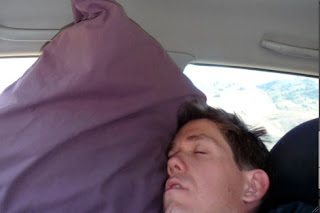 Sleep is an activity that roughly consumes a third of our day and significantly impacts our hormones. Sleep disturbances are linked to obesity, diabetes, heart disease, depression and infertility. The myriad of sleep and hormone interactions could take pages to explain so I will discuss a few of the more common ones.
Sleep is an activity that roughly consumes a third of our day and significantly impacts our hormones. Sleep disturbances are linked to obesity, diabetes, heart disease, depression and infertility. The myriad of sleep and hormone interactions could take pages to explain so I will discuss a few of the more common ones.
Your bodily functions are guided by circadian rhythms; a 24-hour cycling of hormones. These internal rhythms help drive the sleep –wake cycles that are opposing forces at play in the body and heavily influenced by your environment. Any disturbance to your circadian cycles can lead to various forms of insomnia and contribute to the development of chronic health problems.
We’ll start with cortisol and melatonin, two major players influential on and influenced by circadian rhythms. Cortisol is released from the adrenal glands with stress contributing to the “flight or fight” response. It naturally peaks in the early morning to wake us and drops off in the evenings, assuming we are able to relax and unwind. Melatonin is opposite to cortisol increasing at dusk to induce sleep and dropping off in the morning hours.
If we are under excessive stress or have poor stress management, our cortisol levels remain high inhibiting the release of melatonin. Not only does this make it difficult to fall asleep, our body cannot repair itself properly as melatonin is needed to stimulate the release of growth hormone. Growth hormone, triggered by melatonin, goes around the body repairing cellular damage from normal day-to- day wear and tear. Without melatonin there is minimal to no growth hormone released and essentially leaves your cells unattended to. The lack of cellular repair, in addition to not being able to sleep adds to the physiological stress furthering the risk of disease as oxidative damage, environmental exposure and detoxification metabolites accumulate.
The next hormone driven by circadian rhythms and commonly out of balance is Thyroid Stimulating Hormone (TSH). Briefly, TSH is released from the pituitary gland and tells the thyroid to release thyroid hormones. TSH peaks before the sleep cycle and decreases throughout the night. If we do not get adequate sleep, our thyroid can become over-stimulated as the TSH levels remain elevated nagging the thyroid throughout the night and into the next day without a break. This leads to various thyroid disorders that are very important to prevent and correct as they impact cholesterol, triglycerides, mood, mental function and weight.
Overall, you need sleep and balanced hormones to be healthy and feel good. Both are essential for health and easily disrupted by the other. Do not underestimate the necessity of good quality sleep as it may set you up for further, more serious health problems. Prevention is the most powerful tool for long-term wellness and a high quality of life. If you are experiencing any form of insomnia try sleeping in a completely dark room (you can purchase black out blinds), nothing stimulating an hour before bed (TV and computers are very mentally stimulating) and create routines that you can stick to especially with bedtimes. If you are still experiencing difficulties you need to see your naturopath. Naturopathic medicine has numerous means of correcting insomnia and hormonal imbalances getting you on a path of wellness one sleep at a time.
By Marsha Hamilton

